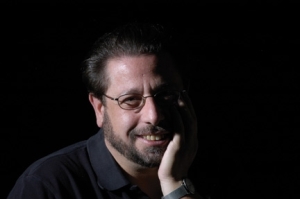PHOENIX, ARIZ.: The local theatre community suffered a tremendous loss on Friday with the closing of the 29-year-old Actors Theatre of Phoenix. The theatre had been one of just four professional companies in the Phoenix metropolitan area.

“Ultimately it came down to a math issue,” says producing artistic director Matthew Wiener in a phone interview. He had led the theatre for 19 years. “Our revenues, both earned and contributed, were not sufficient to sustain the expenses of a professional theatre company.” The theatre’s board voted to cease operations and to liquidate the company within the next 30 to 60 days.
The theatre had been battling cash-flow issues for the past few years. In 2009, it lost its line of credit, which meant doing daily business became more difficult. In 2011, Actors Theatre was on the brink of closure and launched a capital campaign that ultimately raised half a million dollars in seven months.
In 2012, after it lost its two-decade home at the Herberger Theater Center, the company took a programming hiatus to reevaluate its business plan. It laid off six of its eight employees, eliminated its costume and scene shop, and downsized its office space.
The operating budget decreased from $1.44 million in 2009 to $814,000 for the 2014–15 season. The 2013–14 season was mounted in various venues in Phoenix, while this season, the theatre was in residency at Helen K. Mason Performing Arts Center, a 140-seat house (the Herberger seated 300).
“There was no one thing to point to,” says Weiner simply. “If there was one area that was the weakest, it was institutional support. This community is still a very young community—government, corporate and foundation support is very limited. Arts and culture have been suffering a lot.”
In 2009, combined government, corporate and foundation contributions supported 47 percent of Actors Theatre’s expenses. By 2013, that number had shrunk to 16 percent, though individual contributions had increased, from 14 percent to 49 percent. The theatre had mostly operated in the black the past several seasons and had little outstanding debt; its recent production of Theresa Rebeck’s Seminar played to sold-out houses.
But finally these were not enough to keep the company afloat. “Even though our numbers were good, our earned revenue was not making its goals, and our contributed revenue was not making its goals, especially on the institutional side,” explains Wiener. “And we basically just ran out of money.”
For local actress Cathy Dresbach, who was slated to start rehearsals for Actors Theatre’s production of Sharr White’s two-hander Annapurna this week, the loss of the theatre means a significant loss of income.
“They provided a lot of work weeks to local Equity actors—there are only a handful of Equity houses in Phoenix,” says Dresbach. “I think for the people that worked for the theatre—actors, designers, directors, etc.—it’s one less place to work. It means going out on the road; it means finding another line of work.”
In a theatre community as close-knit as Phoenix, where everyone knows everyone else and a majority of the local professionals depended on Actors Theatre for at least some of their regular work, the news is particularly unwelcome. Actors Theatre is not the only professional company to shut its doors in recent years. In 2012, Arizona Jewish Theatre was also forced to close after 24 years, also citing decline of contributed income.
“It’s closing in on the end of professional theatre here,” says Jeffrey Thomson, who frequently designed sets for Actors Theatre and is a professor at Arizona State University. “There really are only, I would say, two companies who can still pay their artists an Equity wage or a USA [United Scenic Artists] wage, and that’s Childsplay and Phoenix Theatre.” According to Thomson, a majority of theatres in the area are community and non-Equity houses. (Arizona Theatre Company, a LORT company that presents part of its season at the Herberger, is based artistically in Tucson, and, according to artists who spoke to American Theatre, tends to hire talent from outside of Phoenix.)
Artistically, the closing of Actors Theatre also means the loss of a local home for contemporary plays. In previous years, programming at the theatre has included Tony Kushner’s Angels in America and David Lindsay-Abaire’s Good People. This season’s programming would have also included Sarah Ruhl’s Stage Kiss and Joan Didion’s The Year of Magical Thinking.
“For the audience, I feel bad, because Actors Theatre was the only company in town that did important, modern, professionally produced work. And that’s going to be a big gap in the artistic fabric,” says Dresbach. She had received her Equity card from performing at Actors Theatre and has appeared in more than 15 productions over the past 15 years.
“I’m wondering if live theatre in general is dying,” she muses. “It’s just economics, supply and demand, and not many people were demanding what we were supplying.” When asked what this means for her career, she can only respond: “I’m not even sure at this point. I’m still licking my wounds.”


